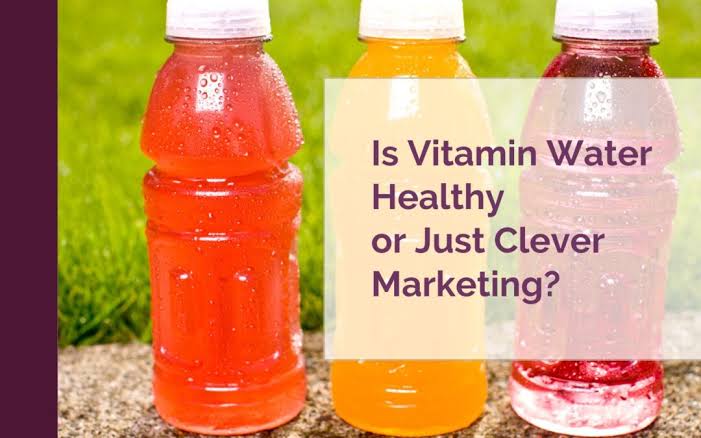Introduction
Vitamin water has become a trendy beverage, promising a combination of hydration and essential nutrients. With vibrant labels and health-centric marketing, it seems like the perfect alternative to plain water. But is vitamin water actually good for you? Or is it just a cleverly marketed drink with hidden drawbacks?
In this blog post, we’ll explore the truth about vitamin water—its benefits, potential downsides, and whether it deserves a spot in your daily routine. By the end, you’ll have a clear understanding of whether it’s worth the hype or better left on the store shelf.
Table of Contents
- What Is Vitamin Water?
- The Good: Benefits of Vitamin Water
- The Not-So-Good: Hidden Downsides
- Who Should Drink Vitamin Water?
- Comparing Vitamin Water to Other Beverages
- Tips for Choosing Healthy Hydration
- FAQs About Vitamin Water
- Conclusion
1. What Is Vitamin Water?
Vitamin water is a flavored drink infused with vitamins, minerals, and sometimes electrolytes. Created to bridge the gap between plain water and sugary beverages, it’s marketed as a healthier option for hydration and nutrient intake.
You’ll often find vitamin water in vibrant packaging, boasting labels like “immune support” or “energy boost.” While these claims can be appealing, they don’t always tell the whole story.
2. The Good: Benefits of Vitamin Water
Vitamin water isn’t all bad—here’s what it does right:
- Hydration: Like any liquid, it keeps you hydrated, which is essential for your overall health.
- Added Nutrients: It contains vitamins like C, B-complex, and electrolytes, which can be helpful if you’re deficient or recovering from intense physical activity.
- Flavorful Option: For those who dislike plain water, vitamin water offers a tasty alternative that can encourage better hydration habits.
If you’re an athlete, physically active, or simply looking for a fun way to drink more fluids, vitamin water can be a decent option.
3. The Not-So-Good: Hidden Downsides
Despite its benefits, vitamin water isn’t perfect. Here’s where it falls short:
- High Sugar Content: Many vitamin water brands contain as much sugar as a soda. This can contribute to weight gain, blood sugar spikes, and even long-term health issues like diabetes.
- Empty Calories: The added sugar increases calorie intake without offering much nutritional value beyond vitamins.
- Artificial Ingredients: Some varieties contain artificial sweeteners, flavors, and colors, which might not align with a clean eating lifestyle.
- Not a Magic Solution: Drinking vitamin water won’t make up for an unhealthy diet or lifestyle.
4. Who Should Drink Vitamin Water?
Vitamin water may be suitable for:
- Athletes: Those needing electrolytes and quick energy after intense workouts.
- Vitamin-Deficient Individuals: If your doctor advises increasing specific vitamins, this can be a convenient option.
- Occasional Indulgence: As a treat or alternative to soda, it’s a better choice in moderation.
However, it’s not ideal for individuals looking to reduce sugar intake or those who can meet their nutrient needs through whole foods and a balanced diet.
5. Comparing Vitamin Water to Other Beverages
Here’s a quick comparison of vitamin water versus other drinks:
| Beverage | Calories | Sugar Content | Key Nutrients |
|---|---|---|---|
| Plain Water | 0 | 0 | None |
| Vitamin Water | 50-100 | 13-32g | Vitamins, Electrolytes |
| Soda | 140-150 | 39-40g | None |
| Coconut Water | 60 | 9g | Potassium, Magnesium |
| Sports Drinks | 80 | 21g | Electrolytes |
While vitamin water has fewer calories than soda, it’s still higher in sugar compared to plain water or healthier hydration options like coconut water.
6. Tips for Choosing Healthy Hydration
- Read the Label: Look for unsweetened or low-sugar varieties.
- DIY Vitamin Water: Make your own by adding fresh fruits, herbs, or a squeeze of citrus to plain water.
- Opt for Plain Water First: Stick to plain water as your main source of hydration and use vitamin water occasionally.
- Balance It Out: If you’re drinking vitamin water, compensate by cutting back on other sugary foods or drinks.
7. FAQs About Vitamin Water
Q: Is vitamin water better than soda?
Yes, it’s better than soda due to lower sugar levels and added nutrients, but it’s not a perfect choice.
Q: Can vitamin water help with weight loss?
Not really. The sugar content and calories can add up, so it’s not ideal for weight management.
Q: Is there a sugar-free option for vitamin water?
Some brands offer sugar-free versions sweetened with alternatives like stevia or erythritol. Check the label to be sure.
Q: How often should I drink vitamin water?
Occasionally. Stick to plain water for daily hydration and reserve vitamin water for specific situations like workouts.
Q: Does vitamin water replace a multivitamin?
No. It contains a limited number of vitamins and won’t cover all your nutritional needs.
Conclusion
So, is vitamin water good for you? The answer depends on how you use it. While it can be a flavorful way to hydrate and get a few extra vitamins, it’s not a miracle drink. Be mindful of the sugar content, read the labels carefully, and enjoy it in moderation.
At the end of the day, nothing beats plain water and a balanced diet for staying healthy and hydrated. But if you enjoy vitamin water, go ahead—just make it part of a well-rounded approach to wellness.



